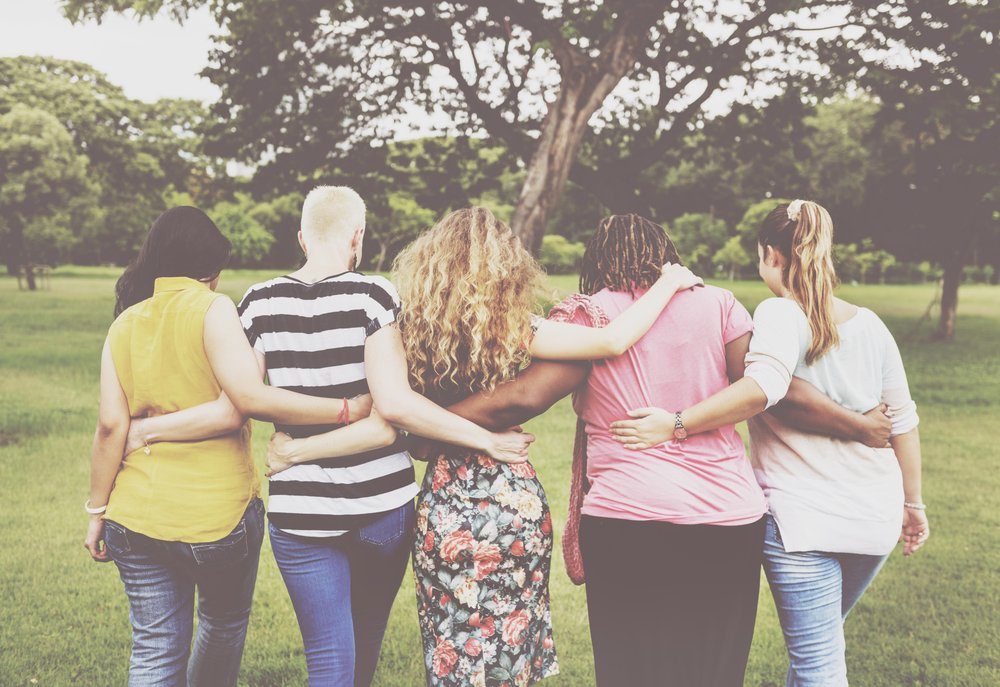Friends Who Can Handle Chronic Illness

In his book “Out of Solitude,” Henri Nouwen writes, “When we honestly ask ourselves which persons in our lives mean the most to us, we often find that it is those who, instead of giving advice, solutions, or cures, have chosen rather to share our pain and touch our wounds with a warm and tender hand. The friend who can be silent with us in a moment of despair or confusion, who can stay with us in an hour of grief and bereavement, who can tolerate not knowing, not curing, not healing and face with us the reality of our powerlessness, that is a friend who cares.”
Maintaining friendships while living with terminal illness is hard. After my husband was diagnosed with ALS, we were in a different place in life than our peers. And as Todd’s disability progressed, it became increasingly difficult to connect.
For many people, after an ALS diagnosis and during the initial stages of the disease, people rally support. But in our fix-it culture, when an illness is incurable and grief has no end date, what is there left to do? After weeks of ALS madness become months, and then years, some friends drift away. They have their own lives, their own problems, and healthy people want to be active.
Most friendships are grounded in physical proximity. People are often friends with those who move in the same circles — at work, at church, or in clubs and organizations. But people with severe disabilities and their caregivers are mostly at home.
People sometimes apologize for talking about their problems that seem less severe than what we are dealing with. “It’s fine,” I say. “I don’t relate to people who don’t have problems.”
While most aren’t dealing with terminal illness, I find that I connect with others who know the hardness of life in different ways. And I don’t always want to talk about the hard and sad — sometimes it’s nice to escape my current reality in lighthearted conversation.
A dear friend visited a couple weekends ago. She’s made the seven-hour trip most years since we moved near my family after Todd’s diagnosis. She wasn’t planning on visiting us this summer out of concern for Todd’s health, but when we chatted on the phone, I found out that she’s been social distancing and she was going to be vacationing with her parents in a cabin just two hours from us. With our encouragement, she decided to extend her vacation and drive farther north to see us.
It was fun to hang out with an old friend who knew us in our golden years before Todd had ALS.
She was a part of our lives when Todd and I first met and when we were getting to know each other. She was a part of our wedding. She became an auntie to our babies. She knew the Todd and Kristin who were optimistic and hopeful for the future. She knew us as a couple that hosted events. She knew Todd when he was an excellent cook. She had seen his craftsmanship in our home renovation. She knew our passions, our dreams. Life was so different then.
During her visit last weekend, we laughed as we reminisced, and we created new memories.
It’s not easy to be friends with those who face terminal illness and progressive disability, so I’m especially thankful for a few friends who have remained a part of our lives.
Another dear friend and I keep in touch by phone and email. We talked the other day, and while our conversation started lightly, I realized I needed to process a scary incident.
Todd aspirated on his own saliva while reclined back in his chair, and for a few moments he couldn’t breathe, cough, or talk. The incident understandably shook him — and it upset me.
My friend empathetically listened as I processed my fear and sadness.
“I wish there was something I could do,” she said.
“There’s nothing anyone can do,” I said with tears in my eyes. “But thank you for listening. There aren’t many people who want to listen to me process this for a decade.”
***
Note: ALS News Today is strictly a news and information website about the disease. It does not provide medical advice, diagnosis, or treatment. This content is not intended to be a substitute for professional medical advice, diagnosis, or treatment. Always seek the advice of your physician or other qualified health provider with any questions you may have regarding a medical condition. Never disregard professional medical advice or delay in seeking it because of something you have read on this website. The opinions expressed in this column are not those of ALS News Today or its parent company, Bionews, and are intended to spark discussion about issues pertaining to ALS.







Carrie Mohn
I could relate a lot to this essay - thanks Kristen